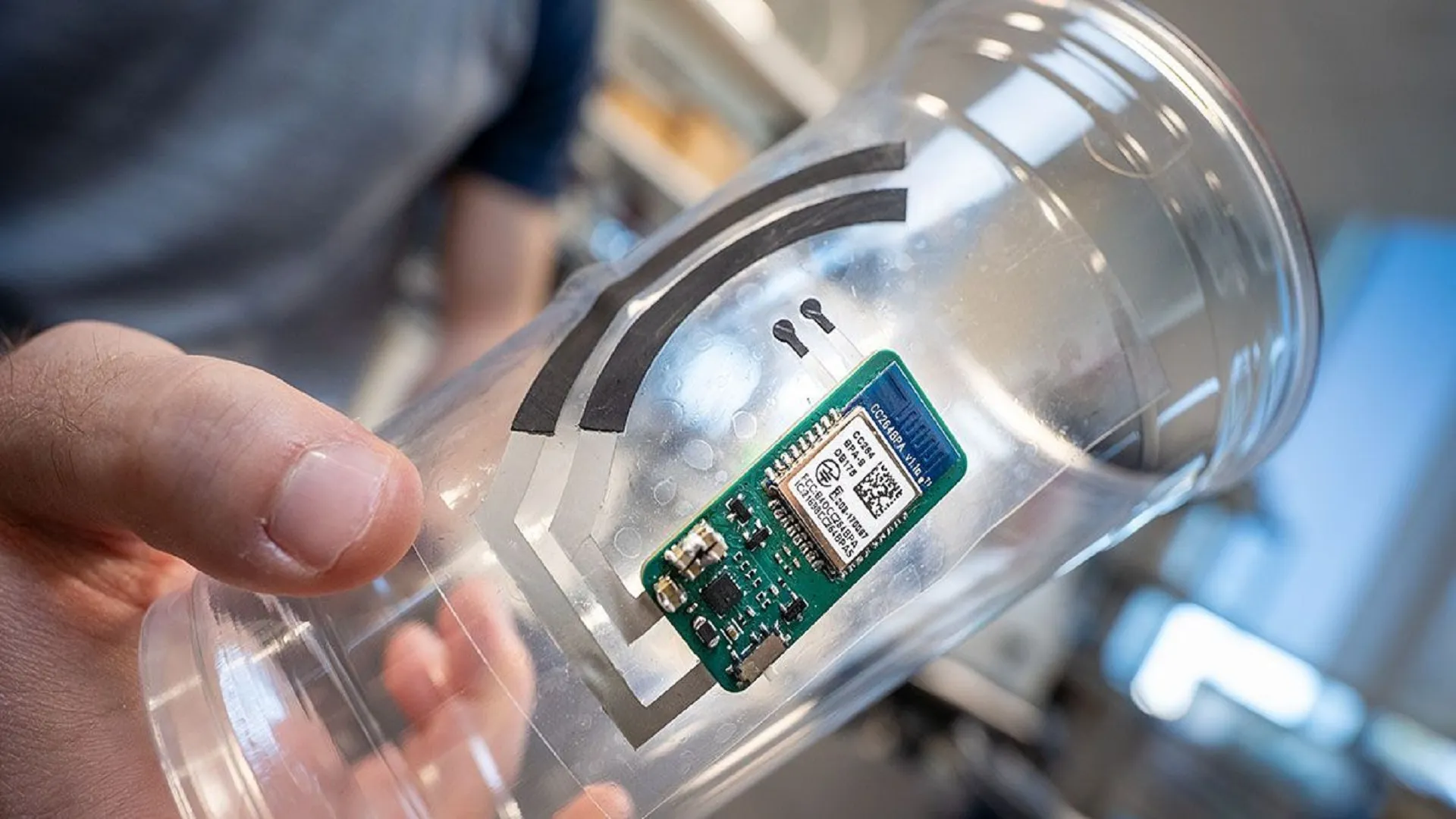Copyright Interesting Engineering

A fingertip on a cup may soon reveal more about your nutrition than a clinic visit. A team of engineers at the University of California San Diego has created an electronic sticker that measures vitamin C levels from just your fingertip sweat. The flexible patch attaches to the outside of any drinking cup and begins its quiet work the moment someone picks it up. As the user grips the cup, the sticker collects microscopic traces of sweat. Within minutes, it harvests enough power from that sweat to analyze vitamin C levels and wirelessly relay the data to a nearby laptop. The device hints at a future where everyday objects quietly track essential health markers. Invisible daily diagnostics “By turning everyday objects like cups or bottles into smart sensors, people can gain real-time insights into their health and wellness without changing a thing about their daily routine,” said Patrick Mercier. “We’re moving toward a future of ‘unawareables’ — devices that are unobtrusive and essentially invisible so that you are unaware that you’re even using them.” Malnutrition and micronutrient deficiencies affect millions globally. Vitamin C supports immunity, tissue repair and iron absorption, yet testing for it remains cumbersome. It typically involves blood draws, specialized equipment, and costs around $50 per test in the U.S., putting routine monitoring out of reach for many. The new sticker offers a low-cost alternative. Built on a flexible polymer sheet, it integrates screen-printed electronics. A porous hydrogel pad pulls sweat from the fingertips. A built-in biofuel cell converts chemicals in the sweat into electricity, powering a custom circuit board and the vitamin C sensor. The circuit board then sends readings through Bluetooth low energy. Sweat turns into power “Most people only get a snapshot of their health once a year at the doctor. But our bodies change much more frequently than that,” Mercier said. “We want to make access to health data as frequent and effortless as holding your morning coffee cup or orange juice bottle.” The sticker’s power source is its most unusual feature. Fingertips, despite their small size, contain over a thousand sweat glands each and can produce up to 1000 times more sweat than much of the body. This steady stream of passive perspiration keeps the system running even when the user is still. Because it operates without batteries, the device could be manufactured for only a few cents. Its low cost opens the door to disposable, widespread use, an advantage for communities with limited access to medical testing. The project combines innovations from the labs of Mercier and Joseph Wang, whose earlier work explored tattoo-like sensors and fingertip-powered wearables. In this system, those advances merge with battery-free wireless electronics. In demonstrations, the sticker adhered to a disposable cup and accurately tracked changes in participants’ vitamin C levels after they consumed supplements or orange juice. It powered itself for more than two hours using only sweat. “This is an elegant extension of our early fingertip sweat-based technology toward effortless, continuous monitoring of personal nutrition and health,” said Wang. “By moving sensors from the skin to the surface of everyday objects like cups or bottles, we are expanding what wearable technology can be.” The researchers plan to adapt the system to measure more nutrients and biochemical markers. Future versions may send data directly to smartphones or smartwatches for seamless, real-time health tracking throughout the day. The study appears in Biosensors and Bioelectronics.



